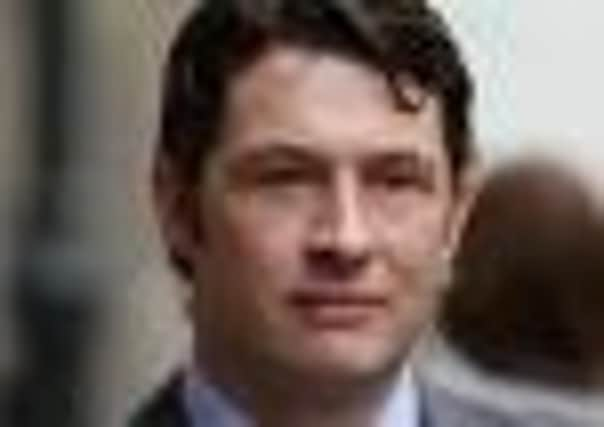Former Army doctor struck off over death of Iraqi prisoner Baha Mousa


• Dr Derek Keilloh struck off medical register over death of Baha Mousa in 2003
• Mousa died in Army custody after suffering 93 separate injuries
Advertisement
Hide AdAdvertisement
Hide AdDr Derek Keilloh, who is from Aberdeen and now works in a GP practice in Yorkshire, was ruled earlier this month by medical watchdogs to have failed to protect detainees and acted dishonestly after the death of Iraqi prisoner Baha Mousa.
The Medical Practitioners Tribunal Service (MPTS) today announced that his name is to be erased from the medical register.
At the MPTS hearing, Dr Keilloh denied any cover-up and claimed he only spotted dried blood around the nose of hotel receptionist Mr Mousa after he was arrested and beaten by British soldiers in Basra in 2003.
Hooded with a sandbag for nearly 24 hours, Mr Mousa suffered 93 separate injuries, including fractured ribs and a broken nose during the final 36 hours of his life in the custody of the 1st Battalion, Queen’s Lancashire Regiment (1 QLR).
Dr Keilloh - the senior medic on duty who treated Mr Mousa, 26, on the night he died - repeatedly denied any knowledge of such injuries.
But the GP, who now works at Mayford House Surgery in Northallerton, North Yorkshire, was found guilty of a series of failures after the death of Mr Mousa and his subsequent conduct. The MPTS found he was aware of the injuries to the victim - but failed to conduct an adequate examination of the body.
Dr Brian Alderman, the chairman of the panel, stated in his ruling: “In all the circumstances, the panel determined that erasure is the only appropriate sanction in this case. It considered that this action is the only way proper standards of conduct and behaviour may be upheld and trust in the profession as a whole may be restored.
“The panel has identified serious breaches of Good Medical Practice and, given the gravity and nature of the extent and context of your dishonesty, it considers that your misconduct is fundamentally incompatible with continued registration.
Advertisement
Hide AdAdvertisement
Hide Ad“Probity is at the heart of medical professionalism and the guidance makes it clear that dishonesty, especially where persistent, is likely to result in erasure.”
Dr Alderman continued: “In making this decision, the panel has taken account of your undoubted professional expertise, the respect in which you are held, your popularity with your patients and the loss to the medical community and public that the erasure of a skilled doctor such as yourself entails.
“However, it is not your clinical competence that is in issue. It is the damage to the profession as a whole and to you as a doctor that your misconduct, particularly relating to repeated dishonesty, has caused. The panel is bound to observe that the mitigation in your case cannot outweigh the gravity of its findings of fact in respect of your dishonesty from 2005 onwards.
“The effect of this direction is that, unless you exercise your right of appeal, your name will be erased from the Medical Register 28 days from the date on which notification of this decision is deemed to have been served upon you.”
And he stated: “Given the panel’s findings, the suspension of your registration even for the maximum period of 12 months would not be sufficient to declare and uphold proper standards of conduct and behaviour and to maintain public confidence in the profession. Furthermore, it would not send a strong enough signal to you, the profession and the public about what is regarded as behaviour unbefitting a doctor.”
Earlier, setting out the background to case, Dr Alderman stated: “In considering what action to take, if any, the panel has kept firmly in mind the unusual circumstances within which your misconduct took place. The Panel has heard that you were a relatively inexperienced doctor, unexpectedly thrust into a war zone at very short notice to supply the highest levels of clinical care with little support or supervision.
“In August 2003, you were still a junior doctor needing six months’ further training before you would qualify as a General Practitioner. In a civilian context, your practice would have continued under supervision for a further six months. The panel has heard of the wide-ranging and complex nature of the role of a Regimental Medical Officer and the attendant need for support and supervision. “
But he stated: “It is of particular concern to the panel that these accounts were given under oath or with an accompanying statement of truth signed by you. Furthermore, they were given in the course of official inquiries attempting to investigate and discover the truth of the events of September 2003. The mitigating context described to the Panel is simply not relevant to your dishonest conduct from 2005 onwards.
Advertisement
Hide AdAdvertisement
Hide Ad“The panel does not accept that it was impossible for you to correct your initial inaccurate account. Instead, you chose to maintain it. Given the national and international importance of these investigations and the need to uncover the truth of what took place, your repeated dishonesty was wholly unacceptable.”
A spokesman for Dr Keilloh said: “Dr Keilloh is extremely disappointed at the decision of this Fitness to Practise Panel and he will need time to consider the implications of this erasure and his future course of action.”
The spokesman added: “He would like to say how much he appreciated the wealth of support he has received from his family, patients, colleagues and friends. This support has helped him through these very prolonged and difficult hearings and hopefully will continue to support him in the future.”